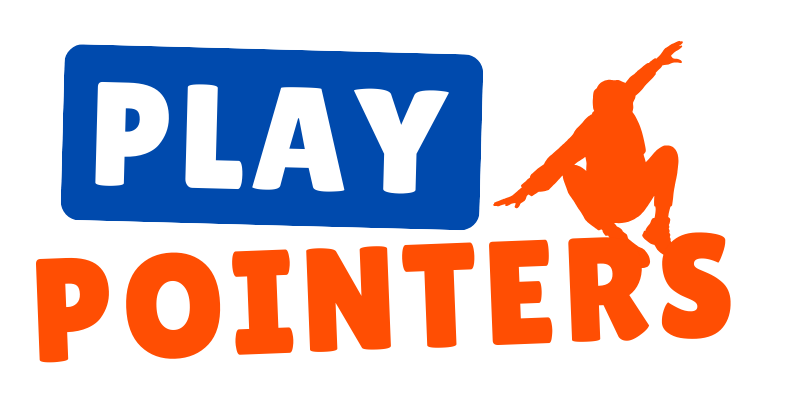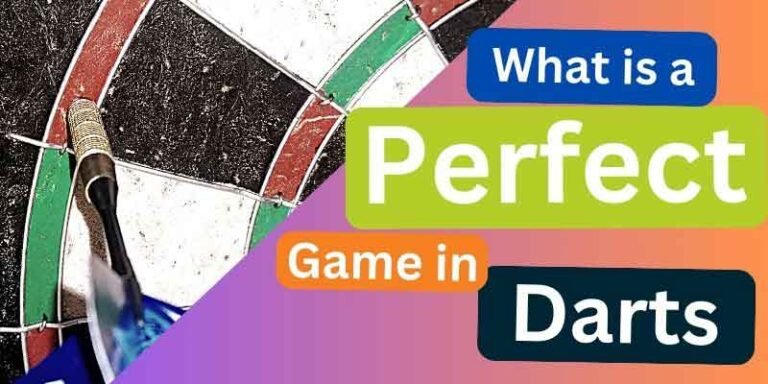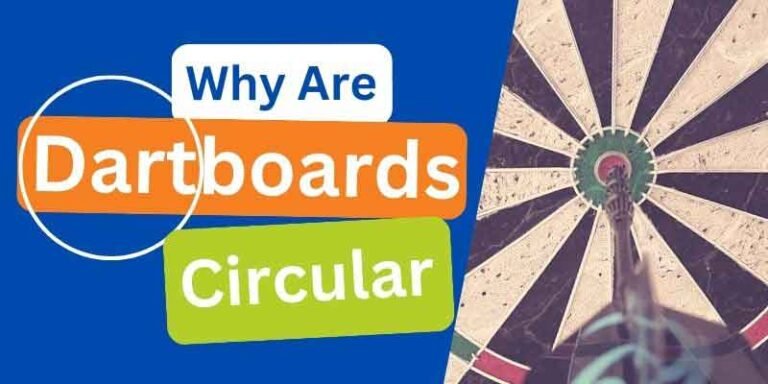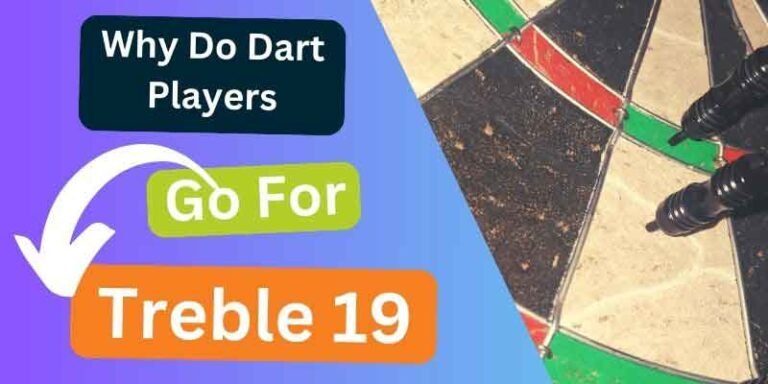How To Get Better At Doubles in Darts?

Key Takeaways:
- There are many different ways to practice doubles
- Playing different games add nice variety to your practice
- The most popular games to practice doubles include: Bobs 27, Doubles Lock and Catch 40
- Variety to your practice sessions help keep it fun and challenging
- Be precise with your doubles training and challenge yourself
- Focus on games that mirror real life scenarios
How To Practice Doubles in Darts?
There is an old saying in dart’s ‘scores for show, doubles for dough’, which is the best way to highlight the importance of being good at doubles.
In a nutshell, it means you may be able to score high, but if you are having trouble hitting your doubles, you won’t win too many games.
Hitting doubles is one of the most important skills you can learn if you play darts.
Playing games that require a double to start can potentially be a nightmare. The game could be over before you even start.
Darts is all about accuracy, consistency and precision which are skills developed through repetitive regular practice.
There are a variety of practice games that will help any player get better at hitting the doubles, which include:
- Catch 40
- One Dart at a Double
- Doubles Lock
- The Checkout Game
- 121 in 9 Darts
- Bob’s 27
- Important Double Combinations
Doubles Practice Darts Games
Doubles Lock
Doubles lock is one of the most popular games among players that want to improve on their doubles.
The game is pretty simple, but fun, and here’s how to play it:
- Start at double 20 and move around the board until you reach double 1.
- If you hit a double, you can move to the next number.
- If you miss all three darts at a double, you go back to the start.
- However, the starting point can be reset during the game, if you are able to hit 2 out of 3 darts at double, which locks the starting point at that double.
- If you miss all three darts at double 5, but locked double 3 out of rotation, this becomes your new starting point.
Bob’s 27
In the world of darts, Bob’s 27 is a well known practice routine game for doubles. It was created by Bob Anderson aka The Limestone Cowboy.
Playing Bob’s 27:
- A player starts on 27 points on double 1 and moves on to double 2, double 3 and so on round the board
- Throw 3 darts at the double 1 and add the value of each double landed to your 27 points
- If you fail to hit the double section with all three darts, subtract the value of the double from the 27 points
- The game continues if you hit every double on the way to the bull, or end up with 0 points
One Dart At A Double
One of the best ways to practice doubles is by using one dart at a double.
It helps to develop one dart efficiency to help you better at checkouts on the last dart. Starting with your first three darts, you throw each one at double 1, 2 and 3.
In the next round you move on to doubles 4,5 and 6 and carry on like that round the dartboard.Provided you keep hitting the double in question.
If you miss a double, you need to revisit that number, while you progress round the numbers.
For example:
- If you missed double 5 but hit doubles 4 and 6.
- You still need to complete double 5, so the next round would carry on as doubles 5, 7 and 8.
- You continue in this way until all doubles have been hit up to the bullseye.
Catch 40
Catch 40 is all about checkouts and the game is simple.
- It’s a training game where the focus is on practicing checkouts between 61-100.
- You have 6 darts that complete the checkout.
- Checking out in 2 darts is worth 3 points.
- Checking out in 3 darts is worth 2 points.
- Taking 4–6 darts is worth 1 point.
- As you cannot finish 99 in two darts, it is worth 3 points if you finish in three darts.
Switching Doubles
This game is all about replicating the most important double switches that are commonly left for players to check out with in games.
Often times you quickly have to switch doubles after hitting the single of the double you are trying to hit. This game will help make the switch to the next double seamless in games.
Therefore, it’s a great game to practice hitting the common switches, which are:
- 16-8-4
- 8-4-2
- 20-10-5
- 12-6-3
You’ll get one dart at each double. You will then need to switch to the next two numbers with your remaining darts.
The Three Stooges
The Three Stooges game, isn’t just a doubles game as it is an all over the board practice game.
However, but it can be used to help improve your doubles when throwing darts. Another name for this game is around the world, which you may be more familiar with.
To play this game:
- You begin at 1 with three darts. You then move down to 2 with your next three darts and onto 3 right round to the inner bullseye to finish the game.
- Points are assigned to single, doubles and trebles.
- A single = 1 point
- A double = 2 points (2 extra points if you hit two doubles, and 6 extra points for three doubles)
- A treble = 3 points (3 extra points if you hit two treble, and 9 extra points if you hit a triple)
Checkout Game
The checkout game replicates real life game finishing scenarios. Pick a checkout combination you feel comfortable starting at.
This will depend on your level, and the aim of the game is to use as few darts as possible to check out with.
If you’re a beginner, you might want to start with a two dart finish. If you’re an advanced player, three dart finishes will be more challenging.
Now randomly pick a score to check out on.
- Give yourself 9 darts at a three dart finish.
- 6 darts at a two dart finish.
121 In 9 Darts
The 121 game is a doubles practice drill used by many professional darts players.
The focus is on high checkouts is a great way to hone your long format darts skills and is perfect practice to improve your doubles in 501 and to a lesser extent 301 games of darts.
The aim is to finish a score of 121 in no more than 9 darts. If you accomplish it, you can then try checking out 122, then 123 and so on.
Frequently Asked Questions
Why Are Doubles Important in Darts?
Doubles are crucial in many darts games, especially in the game of ‘501’. To win, a player must finish by hitting a double, making proficiency in doubles essential for success.
How Often Should I Practice Doubles?
To improve, it’s recommended to dedicate a significant portion of your practice time to doubles. Aim for at least 30 minutes to an hour daily if you’re serious about improving.
Are There Specific Doubles I Should Focus On?
While all doubles are important, some are hit more frequently in games. Focus on the most commonly used ones like double 20, double 16, and double 10, but don’t neglect the others.
How Can I Improve My Accuracy?
Consistent stance, grip, and throwing motion are key. Ensure you’re repeating the same motion every time and make adjustments as needed.
Are There Drills I Can Do to Improve My Doubles?
Yes, a popular drill is the “Around the World” where you aim to hit every double in sequence from 1 to 20. Another is to repeatedly aim for a specific double until you hit it a set number of times.
How Important Is Mental Focus When Aiming for Doubles?
Extremely important. Doubles often require precision, and being mentally distracted can affect your accuracy. Practice focusing on your target and blocking out external distractions.
Should I Have a Preferred Double to Finish a Game?
While it’s good to be versatile, many players have a preferred double they feel most confident in. However, be always prepared to switch if the game situation demands it.
How Can I Stay Calm Under Pressure When Aiming for Doubles?
Practice is key. The more you practice, the more confident you’ll feel during actual games. Breathing exercises and visualization techniques can also help.
Are There Any Techniques to Improve My Chances of Hitting a Double?
Aim for the larger portion of the double segment, and if you miss, use your previous dart as a guide or marker for your next throw.
Should I Seek Coaching or Watch Professionals Play?
Yes, watching professionals can provide insights into techniques and strategies. If possible, consider getting a coach or joining a darts club to receive personalized feedback.
References
https://www.linkedin.com/pulse/what-double-darts-ghayyur-blogger






